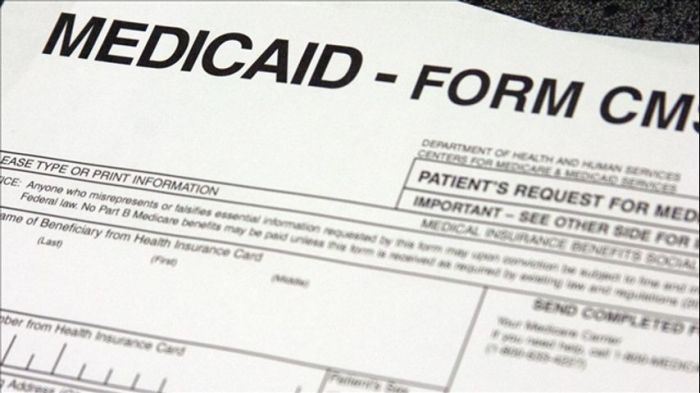Unveiling the intricacies of moa115 medical records and insurance, this comprehensive guide empowers individuals with the knowledge and tools to navigate the complexities of healthcare documentation and financial coverage. By delving into the significance of medical records, exploring insurance options, and unraveling the nuances of billing and data privacy, this discourse aims to illuminate the path toward optimal healthcare management for moa115 patients.
Understanding the significance of medical records in the context of moa115 is paramount. These records serve as a repository of vital patient information, providing a detailed account of medical history, treatments received, and outcomes. Accurate and complete medical records are indispensable for ensuring continuity of care, facilitating accurate diagnosis, and supporting informed decision-making.
Medical Records

Medical records are a vital component of the healthcare system for individuals with moa115. They provide a comprehensive and chronological account of a patient’s medical history, including diagnoses, treatments, and outcomes.
Examples of medical records relevant to moa115 include:
- Genetic testing results
- Physical examination findings
- Laboratory test results
- Imaging studies
- Treatment plans
- Progress notes
- Discharge summaries
Maintaining accurate and complete medical records is crucial for moa115 patients for several reasons:
Accurate and complete medical records facilitate effective communication among healthcare providers involved in a patient’s care. They ensure that all members of the healthcare team have access to the same information, reducing the risk of errors and improving coordination of care.
Medical records provide a baseline for monitoring a patient’s condition and evaluating the effectiveness of treatments. By comparing current findings to previous records, healthcare providers can assess a patient’s progress and make informed decisions about future care.
Medical records are essential for research and quality improvement initiatives. They provide data that can be used to identify trends, evaluate outcomes, and develop new and more effective treatments for moa115.
Insurance Coverage: Moa115 Medical Records And Insurance
Insurance coverage plays a crucial role in mitigating the financial burden associated with moa115 treatment. Various insurance options are available to cover the expenses incurred during diagnosis, treatment, and follow-up care. Understanding the types of coverage and the process of obtaining insurance can empower patients and their families to maximize their benefits.
Types of Insurance Coverage
The primary types of insurance coverage for moa115 medical expenses include:
-
-*Private Health Insurance
Many private health insurance plans offer coverage for moa115 treatment, including diagnostic tests, hospitalization, and medications. The specific coverage varies depending on the plan and the insurer.
-*Medicare
Medicare is a federal health insurance program available to individuals aged 65 and older, as well as those with certain disabilities. Medicare Part A (Hospital Insurance) covers inpatient hospital stays, skilled nursing facility care, and hospice care. Medicare Part B (Medical Insurance) covers outpatient medical services, including physician visits, diagnostic tests, and durable medical equipment.
-*Medicaid
Medicaid is a joint federal-state health insurance program for low-income individuals and families. Medicaid coverage for moa115 treatment varies by state, but generally includes medically necessary services, such as diagnostic tests, treatment, and medication.
Billing and Coding

Billing and coding for moa115 medical services involve the use of specific codes to represent the procedures and treatments provided. These codes are used to submit medical claims to insurance companies for reimbursement.
The primary billing code used for moa115 treatment is G0439, which represents “Medical nutrition therapy, initial assessment and intervention, face-to-face with the patient, per 15 minutes”. This code is used for the initial assessment and development of a nutrition plan for patients with moa115.
Subsequent visits for medical nutrition therapy are billed using the code G0440, which represents “Medical nutrition therapy, reassessment and intervention, face-to-face with the patient, per 15 minutes”. This code is used for follow-up visits to monitor the patient’s progress and make adjustments to the nutrition plan as needed.
Submitting Medical Claims
To submit medical claims for moa115 treatment, healthcare providers must use a standardized claim form, such as the CMS-1500 form. The claim form must include the following information:
- Patient’s name and insurance information
- Provider’s name and address
- Date of service
- Procedure codes (G0439 or G0440)
- Units of service (number of 15-minute intervals)
- Total charges
Resolving Billing Disputes
If a healthcare provider receives a denied or disputed claim for moa115 treatment, they should follow these steps:
- Review the claim form and supporting documentation to identify any errors or omissions.
- Contact the insurance company to inquire about the reason for the denial or dispute.
- Provide the insurance company with any additional information or documentation that may support the claim.
- If necessary, file an appeal with the insurance company.
Data Privacy and Security

The privacy and security of moa115 medical records are of paramount importance, both legally and ethically. The Health Insurance Portability and Accountability Act (HIPAA) and other applicable laws and regulations mandate the protection of patient health information, ensuring its confidentiality, integrity, and availability.
Measures to Protect Confidentiality
- Encryption:Patient data is encrypted at rest and in transit, rendering it unreadable to unauthorized individuals.
- Access Controls:Access to medical records is restricted to authorized healthcare providers and staff based on their roles and responsibilities.
- Audit Trails:All access to medical records is logged and monitored, providing a record of who accessed what information and when.
- Security Training:Staff is regularly trained on HIPAA regulations and best practices for protecting patient privacy.
Sharing Medical Data for Research
Sharing moa115 medical data for research purposes can provide valuable insights into disease patterns, treatment outcomes, and the development of new therapies. However, it is crucial to balance the potential benefits of research with the risks to patient privacy.
- De-identification:Medical data can be de-identified by removing personally identifiable information, such as names, addresses, and dates of birth, before sharing it for research.
- Informed Consent:Patients must provide informed consent before their medical data can be shared for research purposes.
- Data Use Agreements:Researchers are required to enter into data use agreements that specify the purpose of the research, the safeguards in place to protect patient privacy, and the limitations on data use.
Patient Advocacy
Patient advocates play a vital role in assisting moa115 patients with medical records and insurance matters. They can help patients understand their rights, navigate the healthcare system, and advocate for their best interests.
Finding Patient Advocates
There are several ways to find patient advocates specializing in moa 115. Here are some resources:
- The National Organization for Rare Disorders (NORD) has a database of patient advocates who specialize in specific rare diseases, including moa115.
- The Genetic and Rare Diseases Information Center (GARD) provides information on genetic and rare diseases, including moa115. GARD also has a directory of patient advocacy organizations.
- The Moa115 Foundation is a non-profit organization that provides support and resources to moa115 patients and families. The foundation can help connect patients with patient advocates.
Importance of Patient Empowerment, Moa115 medical records and insurance
Patient empowerment is crucial in managing medical records and insurance coverage. Empowered patients are more likely to:
- Understand their rights and responsibilities.
- Be able to advocate for themselves.
- Make informed decisions about their care.
Patient advocates can help empower patients by providing them with information, support, and guidance.
Question Bank
What are the key components of moa115 medical records?
moa115 medical records typically include patient demographics, medical history, treatment plans, laboratory results, imaging studies, and progress notes.
How can I obtain insurance coverage for moa115 treatment?
Insurance coverage for moa115 treatment can be obtained through private insurance plans, government-sponsored programs such as Medicare and Medicaid, or specialized insurance policies designed specifically for moa115 patients.
What are the potential risks associated with sharing moa115 medical data for research purposes?
Potential risks include the unauthorized disclosure of sensitive patient information, the misuse of data for commercial purposes, and the potential for research findings to be biased or inaccurate.